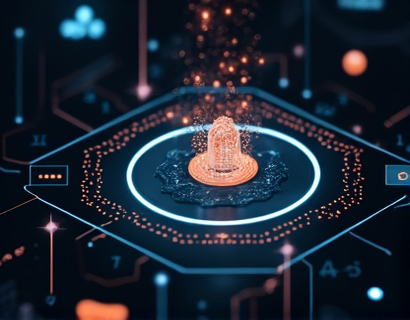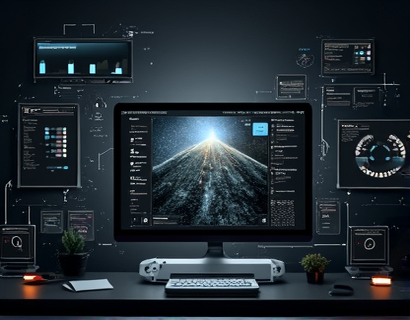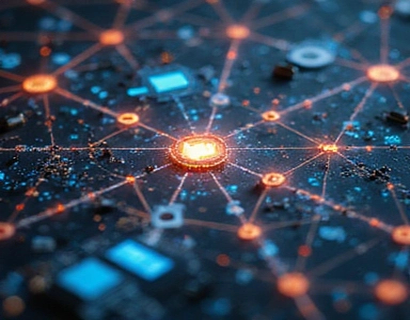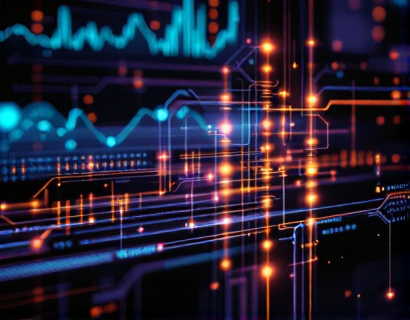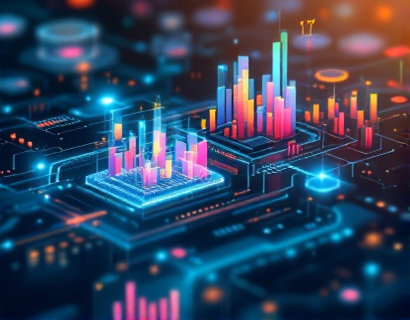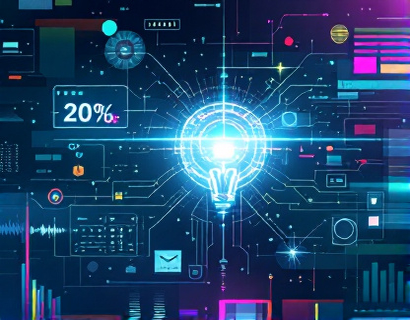Unlocking Advanced Digital Transformation: The Synergy of Crypto and AI
The intersection of cryptocurrency and artificial intelligence (AI) is catalyzing a new era of digital transformation, offering unprecedented opportunities for tech pioneers and early adopters. This convergence is not just a technological curiosity but a powerful force reshaping app interactions and driving innovation across various industries. As we delve into this topic, we will explore how these technologies are intertwining to create more secure, efficient, and intelligent digital experiences.
The Foundations of Cryptocurrency and AI
To understand the profound impact of this synergy, it's essential to first grasp the fundamentals of both cryptocurrency and AI. Cryptocurrency, exemplified by Bitcoin and Ethereum, is a digital or virtual currency that uses cryptography for security and operates on a decentralized network known as a blockchain. This decentralized nature ensures transparency, security, and reduces the need for intermediaries.
Artificial intelligence, on the other hand, involves the simulation of human intelligence processes by machines, particularly computer systems. These processes include learning (the acquisition of information and rules for using it), reasoning (using rules to reach approximate or definite conclusions), and self-correction. AI technologies such as machine learning, natural language processing, and computer vision are revolutionizing how we interact with digital systems.
Enhancing Security through Cryptography and AI
One of the most significant benefits of combining cryptocurrency and AI is the enhancement of security measures. Traditional security protocols can be vulnerable to sophisticated cyber attacks. AI can analyze vast amounts of data to detect anomalies and potential threats in real-time, providing a more robust defense mechanism. For instance, AI-driven systems can monitor blockchain transactions for unusual patterns that might indicate fraudulent activity, thereby strengthening the security of cryptocurrency networks.
Moreover, AI can improve the security of private keys and wallet management. Machine learning algorithms can predict and prevent unauthorized access by recognizing user behavior patterns and flagging any deviations. This proactive approach to security is crucial in a landscape where cyber threats are becoming increasingly sophisticated.
Optimizing App Interactions with AI-Powered Smart Contracts
Smart contracts, self-executing contracts with the terms directly written into code, are a cornerstone of blockchain technology. When combined with AI, smart contracts can become even more dynamic and intelligent. AI can process complex data inputs and make decisions that traditional smart contracts cannot handle. For example, AI-powered smart contracts can adapt to changing market conditions, automatically adjusting terms and conditions based on real-time data analysis.
This integration allows for more sophisticated and flexible app interactions. Users can benefit from automated processes that are not only secure but also context-aware. For instance, in decentralized finance (DeFi) applications, AI-enhanced smart contracts can optimize trading strategies, manage risks, and execute transactions with minimal human intervention, leading to more efficient and reliable financial services.
Personalization and User Experience
The convergence of cryptocurrency and AI is also transforming how applications personalize user experiences. AI algorithms can analyze user data to provide tailored recommendations, enhancing the overall user experience. In the context of cryptocurrency, this means that users can receive personalized investment advice, curated content, and relevant services based on their preferences and behavior.
For example, a crypto-focused app can use AI to analyze a user's transaction history, portfolio, and market interests to suggest optimal investment opportunities or alert them to potential risks. This level of personalization not only improves user satisfaction but also increases engagement and loyalty to the platform.
Decentralized Data Marketplaces
Another exciting development at the intersection of cryptocurrency and AI is the emergence of decentralized data marketplaces. These platforms allow users to monetize their data while maintaining control and privacy. AI plays a crucial role in these marketplaces by ensuring data quality, relevance, and security.
AI algorithms can verify the accuracy and integrity of data before it is sold, ensuring that buyers receive high-quality information. Additionally, AI can facilitate the matching of data suppliers and buyers, optimizing the marketplace's efficiency. This synergy empowers users to leverage their data as an asset, creating new revenue streams and fostering a more data-driven economy.
Supply Chain Transparency and Efficiency
The supply chain industry stands to gain significantly from the integration of cryptocurrency and AI. Blockchain technology provides a transparent and immutable record of transactions, while AI can optimize various stages of the supply chain. For instance, AI can predict demand, optimize inventory levels, and streamline logistics, reducing costs and improving efficiency.
Cryptocurrency can facilitate seamless and secure transactions across the supply chain, eliminating the need for intermediaries and reducing transaction costs. Smart contracts can automate payment processes based on predefined conditions, ensuring that all parties are held accountable and transactions are executed promptly. This combination enhances trust and reliability in global supply chains, making them more resilient and responsive to market changes.
Challenges and Considerations
While the potential benefits are substantial, the integration of cryptocurrency and AI also presents several challenges. One of the primary concerns is regulatory uncertainty. The decentralized and often anonymous nature of cryptocurrencies can raise regulatory issues, especially when combined with AI's data processing capabilities. Ensuring compliance with existing laws and regulations while innovating in this space requires careful navigation.
Another challenge is the technical complexity involved in integrating these technologies. Developers need a deep understanding of both blockchain and AI to create robust and secure applications. This requires significant investment in research and development, as well as skilled personnel. However, the long-term benefits far outweigh these initial challenges.
Future Prospects and Innovations
Looking ahead, the synergy between cryptocurrency and AI is poised to drive even more innovative solutions. One area of focus is the development of decentralized artificial intelligence (DAI), where AI models are trained and operated on decentralized networks. This approach can enhance privacy, reduce the risk of data breaches, and democratize access to advanced AI technologies.
Another promising direction is the integration of AI with other blockchain-based technologies, such as Internet of Things (IoT) devices and quantum computing. AI can process and analyze the vast amounts of data generated by IoT devices, while quantum computing can solve complex problems that are currently infeasible for classical computers. Together, these technologies can unlock new possibilities in areas like smart cities, healthcare, and beyond.
Conclusion
The convergence of cryptocurrency and AI is not just a technological trend but a transformative force that is redefining the digital landscape. For tech pioneers and early adopters, embracing this synergy offers a competitive edge and the opportunity to shape the future of technology. By leveraging the security, efficiency, and intelligence provided by this combination, we can build more resilient, user-centric, and innovative digital solutions. As we continue to explore and harness the potential of this powerful convergence, the possibilities for digital transformation are truly limitless.







